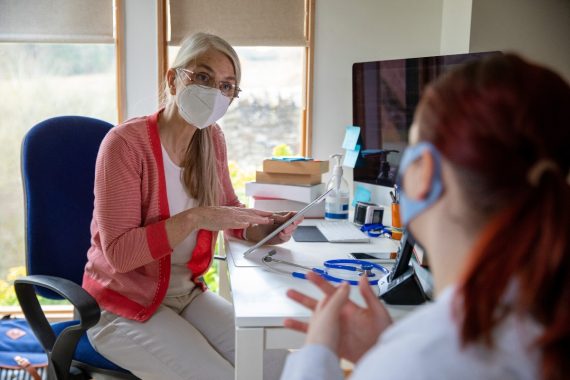An analysis of millions of patient records has found no differences in clinical competence or safety between locum GPs and those in permanent roles.
Researchers at the University of Manchester found no evidence that emergency admission rates within seven days of a consultation were different when patients were seen by a locum or permanent GP.
Their analysis found small variations in practice that are likely to relate to the organisational systems in which locums are working, they reported in BMC Medicine.
The study of healthcare records for 3.5 million patients between 2010 and 2022 should provide reassurance over the competency of temporary doctors, the researchers concluded.
Hospital admissions for a range of conditions including COPD, asthma, diabetes, epilepsy, hypertension, heart failure, stroke and transient ischemic attack, peripheral arterial disease and hypothyroidism also did not differ for locum GPs in the week after a patient had been seen.
The team also assessed 11 prescribing safety indicators and found eight of them were comparable for locum and permanent doctors.
For the other three indicators, locums were more likely to prescribe an oral NSAID without an ulcer healing drug but less likely to co-prescribe warfarin or direct oral anticoagulant with an NSAID.
They were also less likely to prescribe a long-acting beta-2 antagonist inhaler to an asthma patient who was not also prescribed and inhaled corticosteroid.
Locum GPs were also 8% more likely to prescribe a strong opioid but 3% less likely to prescribe a hypnotic.
The study did find that a consultation with a locum was 5% more likely to be followed by an A&E visit within the next seven days and 21% more likely to involve a prescription for an antibiotic.
One stand-out finding was that GPs are markedly less likely to both order tests and refer patients to other services than permanent GPs, the researchers said.
But this probably relates to practices setting boundaries on such decisions by locum doctors, with rules saying they need to be reviewed or approved by another GP in the practice.
Lead author Dr Christos Grigoroglou, a research fellow in the Centre for Health Economics at the University of Manchester, said locums were a key part of the medical workforce, yet little was known about differences in quality and safety of care.
He said: ‘There have been some past high-profile examples of poor quality care by locum doctors, though the same could likely be said for permanent doctors.
‘Indeed, our qualitative research suggests that some patients actually welcome the opportunity to see a locum GP because they get a fresh perspective on their condition.’
The researchers said it is likely that the performance of both locum and permanent GPs is shaped by the ‘wider organisational context in which they practice’, including the quality of induction, supervision, communication, and practice management.
Study co-author Dr Thomas Allen, also a research fellow at the University of Manchester, said: ‘Despite public concerns, the clinical practice and performance of locum GPs did not appear to be systematically different from that of permanent GPs in our study.
‘Greater attention to the quality of induction, supervision, communication, and practice management may help address some of the differences we did find.’
A different study published in the Journal of the Royal Society of Medicine also found that there is little evidence that locum doctors, including GPs, have a ‘detrimental’ impact on patient care delivery.
Last year, around half of GP locums reported a decrease in their sessions worked over the past year due to a lack of work available, according to the results of a Pulse survey.
















Equally trained GPs produce equal results? Shocker!
Actually I am disappointed the Locums were not better! We try hard to be.
The several differences I suspect may be related to bias in which patients see usual GPs compared to locums : this is influenced by day off attendance; if in school holidays; if pre-booked; if ‘on-the-day’; if a more frequent attender; if dealing with admin and test results, or not; if doing hospital and NH ward rounds or not; if doing HVs or not; if calling practice in afternoon instead of morning, etctc.
No mention of work ”dumped” on the Locum that no one else wants to do——-which of course is everything
..And of course work dumped on the regular GPs by locums which is far too many things. Not all locums by a long shot but enough to make life a misery. Of course locums are safe they can afford to be completely safe, a lot of Ix and Px but minimal FU
Not having a dig at locums, but surely ‘safe’ is the absolute bare minimum expectation for a doctor.
Safety is the bare minimum, closely followed by competent, followed by effective. The latter being the hardest to actually measure by any objective means.